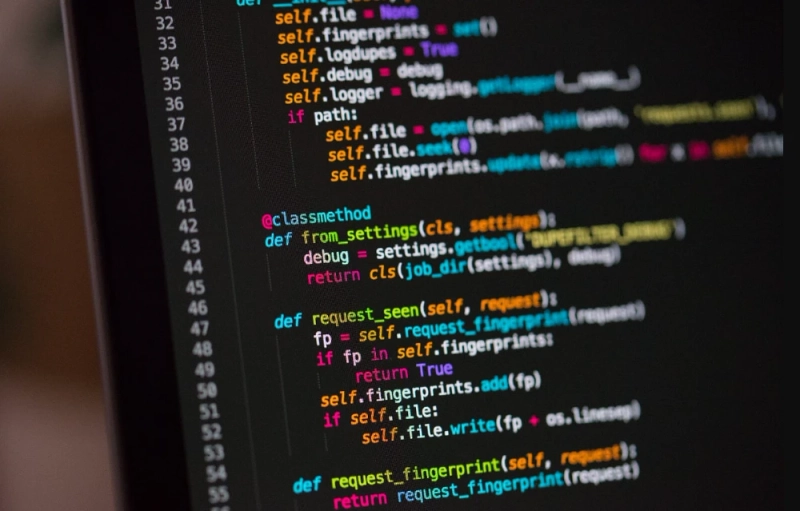Coding is a science and an art. In coding, developers face obstacles that challenge their logical mind, effectiveness, and debugging skills while solving problems. However, most developers, whether novice or experienced professionals, commit similar errors that decelerate their progress. Understanding these errors and how to circumvent them can enhance problem-solving skills and effective coding techniques.
Here, we will discuss the most common mistakes programmers make when solving coding problems and offer tips on overcoming them.
1. Not Understanding the Problem Statement Fully
One of the developers' most frequent errors is rushing into coding without understanding the problem. This usually results in faulty solutions, lost time, and avoidable frustration.
How to Avoid This Error?
● Carefully read the problem statement at least twice.
● Identify key constraints, edge cases, and expected inputs/outputs.
● Record a summary of the problem in your own words to ensure understanding.
● Request clarifying questions if in a team or coding interview environment.
2. Ignoring Edge Cases and Constraints
Several programmers code for common test cases and fail when dealing with extreme values or edge cases. This will result in software bugs and unpredictable crashes.
Avoiding This Blunder:
● Always check the problem's constraints before coding.
● Account for edge cases like null inputs, hugely large or hugely small values, negative numbers, and repeated values.
● Validate your solution using boundary testing.
● Write unit tests for edge cases before submitting your solution.
3. Writing Inefficient Code
Efficiently solving coding challenges is equally important as correctly solving them. Most programmers provide correct solutions but have low time or space complexity, making them inefficient with large data.
How to Avoid Making This Mistake:
● Analyze the problem before coding and determine the best approach.
● Keep time complexity (Big O notation) in mind while solving.
● Improve your solution by applying the appropriate data structures (e.g., hash maps over nested loops).
● Reduce unnecessary computation and repetitive operations.
4. Overcomplicating the Solution
Some programmers attempt to code excessively complex, using higher-level algorithms or unneeded abstractions, whereas a straightforward solution will do. This can cause the code to be hard to read and debug.
How to Not Make This Mistake:
● Begin with a brute-force solution first and optimize afterward.
● Split the problem into discrete, manageable pieces.
● Code using clear, readable code instead of clever but opaque solutions.
● Obey the KISS (Keep It Simple, Stupid) principle.
5. Not Debugging Systematically
When one solution fails, most developers make arbitrary changes to their code rather than debugging it systematically. This usually results in frustration and wasted efforts.
How to Avoid Making This Blunder:
● Use print statements or a debugger to step through variable values.
● Test the code with test inputs and actual outputs.
● Break down the code into smaller parts and test each part individually.
● Adopt a systematic debugging strategy rather than doing blind modifications.
6. Not Practicing Enough
Most programmers anticipate being skilled at solving programming problems without regular practice. Programming is a skill that needs frequent problem-solving to master.
How to Avoid This Mistake:
● Spend time every week to complete coding problems.
● Practice regularly using platforms such as LeetCode, Codewars, and HackerRank.
● Practice problems of growing complexity to develop confidence and competence.
● Engage in coding competitions to enhance speed and accuracy.
7. Ignoring Code Readability and Best Practices
Some programmers only care about obtaining the right output and do not follow best practices such as code readability, modularity, and documentation. Such poorly written code may be hard to maintain and debug.
How to Avoid This Mistake:
● Use descriptive variable and function names.
● Use uniform indentation and formatting practices.
● Use comments where appropriate to describe tricky logic.
● Make functions small and specialized for a particular task.
8. Skipping Algorithm and Data Structure Fundamentals
Most developers have trouble with coding issues due to a lack of a solid background in algorithms and data structures. Without this, it is hard to solve problems efficiently.
How to Avoid This Error:
● Study and practice basic data structures such as arrays, linked lists, trees, and graphs.
● Practice basic algorithms like sorting, searching, dynamic programming, and recursion.
● Apply these ideas to practical coding issues.
● Learn through online courses or books on algorithms and data structures.
Final Thoughts
By avoiding these errors, you can significantly improve your problem-solving skills and coding efficiency. Whether practicing for coding interviews, competitive programming, or actual development, taking heed of these errors will make you a better writer of cleaner and more efficient code.
With regular practice, systematic debugging, and learning from errors, you can master coding problems and accelerate your development career. Practice regularly and challenge yourself harder, and you'll see a huge improvement in your coding skills soon!



